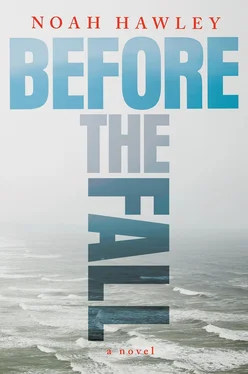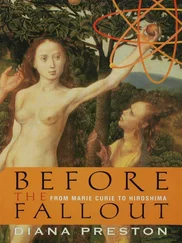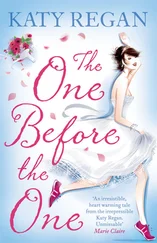Does television exist for us to watch, in other words, or do we exist to watch television?
Overhead, the wave crested, teetering, a five-story building on the verge of smooth collapse, and he dove, squeezing the boy to him, no time to take a breath, his body taking over, survival no longer trusted to the abstract functions of the mind. Legs kicking, he entered the blacks, feeling the spin-cycle tug of the wave pulling all things to it, and then the tilt and inevitable gravity of descent, grabbed by a monster’s hand and thrust deeper, and now it was all he could do to hold the boy to his body and survive.
Was Scott having an affair with Maggie? That’s what they asked. A married mother of two, a former preschool teacher. And to them she was what — a character on a reality show? A sad and lusty housewife from post-modern Chekhov?
He thinks of Layla’s living room, the late-night OCD of an insomniac transforming it into some kind of memory palace. And how this charcoal rendering will most likely be the last picture of Maggie ever created.
Would he have slept with her if she’d asked? Was he attracted to her, and perhaps her to him? Did he stand too close when she came to view his work, or did he bounce nervously on his toes, keeping his distance? She was the first person he’d shown the work to, the first civilian, and his fingertips were itchy. As she walked the barn he felt the urge for a drink, but it was a scar, not a scab, and he didn’t pick it.
This is his truth, the story he tells himself. Publicly, Scott is just a player in a drama not his own. He is “Scott Burroughs,” heroic scoundrel. It’s just the hint of an idea now, a theory. But he can see how it could blossom, becoming — what? A kind of painting. Fact turned to fiction step by step.
He thinks of Andy Warhol, who used to make up different stories for different journalists— I was born in Akron. I was born in Pittsburgh —so when he spoke to people he would know which interviews they’d read. Warhol, who understood the idea that the self was just a story we told. Reinvention used to be a tool of the artist. He thinks of Duchamp’s urinal, of Claes Oldenburg’s giant ashtray. To take reality and repurpose it, bend it to an idea, this was the kingdom of make-believe.
But journalism was something else, wasn’t it? It was meant to be objective reporting of facts, no matter how contradictory. You didn’t make the news fit the story. You simply reported the facts as they were. When had that stopped being true? Scott remembers the reporters of his youth, Cronkite, Mike Wallace, Woodward and Bernstein, men with rules, men of iron will. And how would they have covered these events?
A private plane crashes. A man and a boy survive.
Information versus entertainment.
It’s not that Scott doesn’t understand the value of “human interest.” What was his fascination with the King of Exercise, if not a fascination with the power of the human spirit? But he could count on one hand the things he knows about Jack’s love life, his romantic history. There was a wife, a decades-long marriage. What more did he need to know?
It’s fascinating to him, as a man who concerns himself with image, to think of how his own is being fabricated — not in the sense of being faked, but how it’s being manufactured, piece by piece. The Story of Scott. The Story of the Crash.
All he wants is to be left alone. Why should he be forced to clarify, to wade into the swamp of lies and try to correct these poisoned thoughts? Isn’t that what they want? For him to engage? To escalate the story? When Bill Cunningham invites him on the air, it is not to set the story straight so the story ends. It is to add a new chapter, a new twist that propels the narrative forward into another week of ratings cycles.
A trap, in other words. They are setting a trap. And if he is smart he will continue to ignore them, move forward, live his life.
As long as he doesn’t mind the fact that nobody on earth will ever again see him as he sees himself.
The house is small and hidden by trees. There’s a port lean to it, as if the wide-plank slats on the left end of the building have given up over the years, slumping from exhaustion or boredom or both. Driving in, Scott thinks it has a kind of shadowy charm, with its blue trim and scalloped white window shutters, a postcard childhood you remember in your dreams. As he pulls in over rough paving stones and parks under an oak tree, Doug comes out of the house carrying a canvas tool bag. He throws it in the open back of an old Jeep Wrangler with some force and moves to the driver’s door without looking up.
Scott waves as he climbs out of the rental, but Doug doesn’t make eye contact, slapping the truck in gear and pulling out in a spray of wood chips. Then Eleanor comes to the front door, holding the boy. Scott finds he has butterflies in his stomach seeing them (her red-checked dress framed against the blue trim and scalloped white shutters, the boy matched in a plaid shirt and short pants). But unlike Eleanor, whose eyes are on Scott, the boy seems distracted, looking back into the house. Then Eleanor says something to him and he turns. Seeing Scott, his face breaks into a smile. Scott offers him a little wave ( When did I become such a waver? he wonders). The boy offers a shy wave back. Then Eleanor puts him down and he half runs, half walks over to Scott, who bends a knee and thinks about scooping him up, but ends up just putting his hands on the boy’s shoulders and looking him in the eye, like a soccer coach.
“Hey, you,” he says.
The boy smiles.
“I brought you something,” says Scott.
He stands and goes to the trunk of the rental car. Inside is a plastic dump truck he found at the gas station. It’s bound to a cardboard box by unbreakable nylon ties, and they spend a few minutes trying to wrestle it free before Eleanor goes inside and fetches some scissors.
“What do we say?” she asks the boy, once the truck is free and the subject of vigorous digging.
“Thank you,” she offers after a moment, when it’s clear the boy isn’t going to speak.
“I didn’t want to show up empty-handed,” says Scott.
She nods.
“Sorry about Doug. We had — things are hard right now.”
Scott musses the boy’s hair.
“Let’s talk inside,” he says. “I passed a news van on the way in. My feeling is I’ve been on TV enough this week.”
She nods. Neither of them wants to be on display.
They catch up at the kitchen table while the boy watches Thomas and Friends and plays with his truck. It will be bedtime soon and the boy is fidgety, his body flopping around on the sofa, his eyes glued to the screen. Scott sits at the kitchen table and watches him through the doorway. The boy’s hair has been cut recently, but not completely — so the bangs are blunt, but the back is bushy. It seems like a junior version of Eleanor’s hair, as if he has adapted in order to fit into the family.
“I thought I could do it myself,” Eleanor explains, putting the kettle on the stove, “but he was so agitated after a few minutes I had to give up. So now every day I try to cut a little bit more, sneaking up on him when he’s playing with his trucks, or—”
As she says it she grabs the scissors from the drawer by the stove and pads in toward the boy, trying to stay out of his field of vision. But he sees her and waves her off, making a kind of primal growl.
“Just—” she says, trying to reason with an unreasonable animal. “It’s longer on the—”
The boy makes the sound again, eyes on the TV. Eleanor nods, comes back into the kitchen.
“I don’t know,” says Scott. “There’s something perfect about a cute kid with a bad haircut.”
Читать дальше












